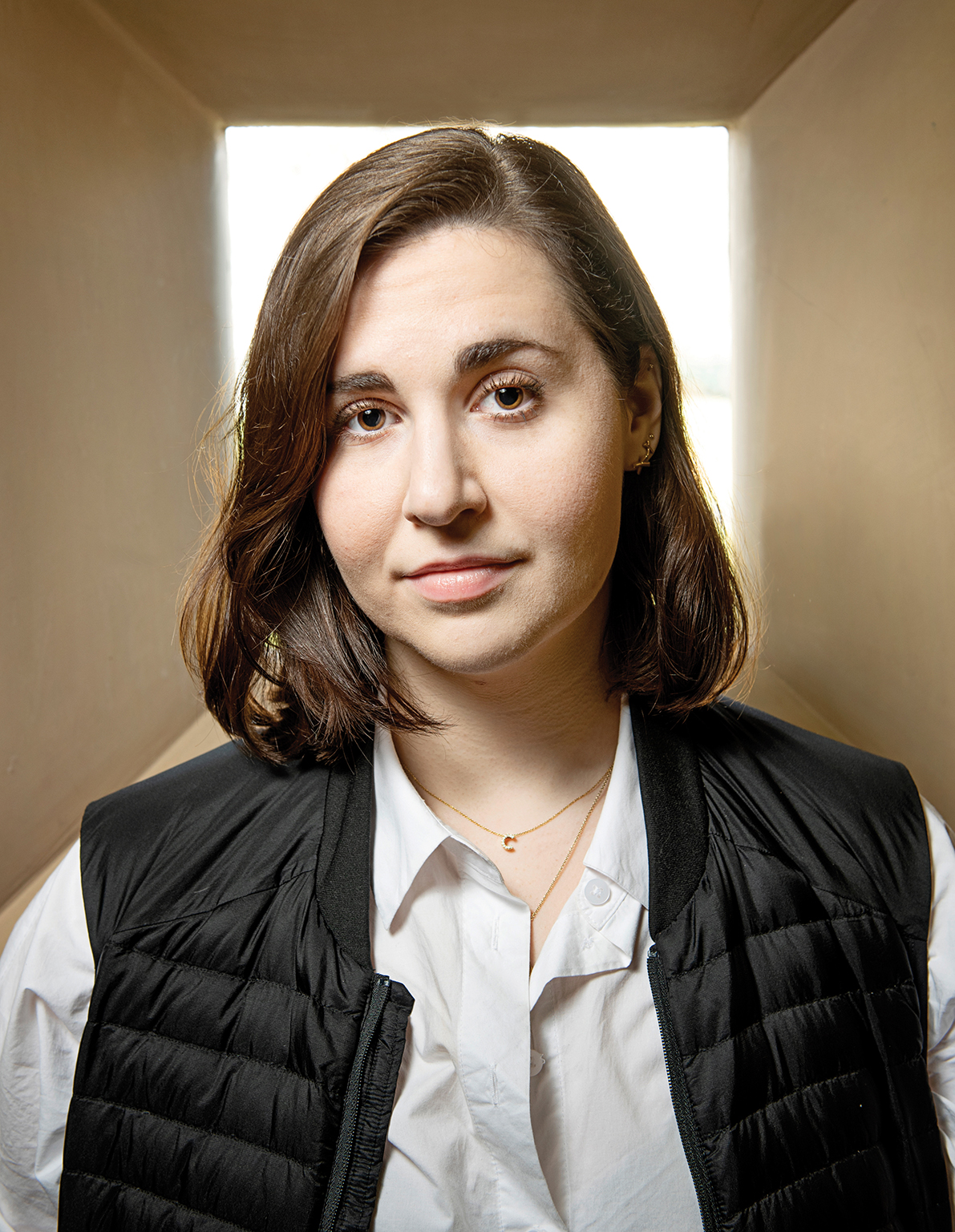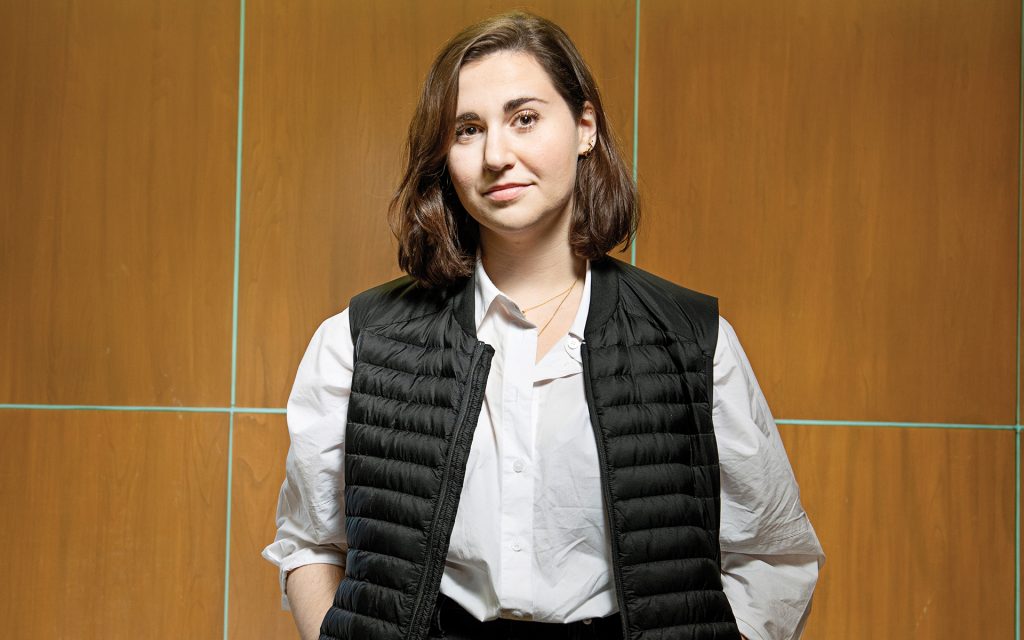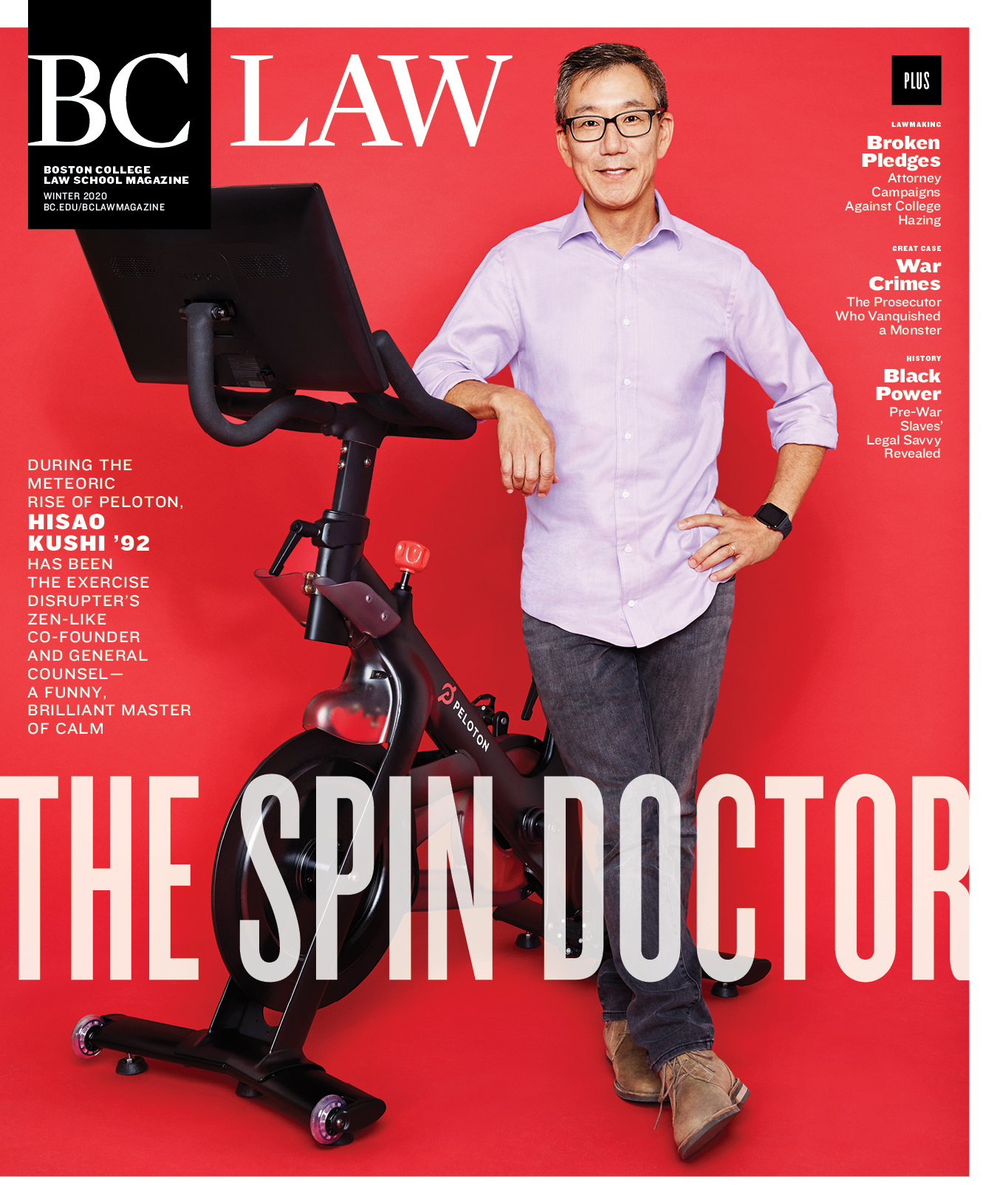Ever since she was a teenager growing up north of Boston, Caroline Reilly ’19 has been a proponent of women’s reproductive rights. So it was logical that as a pioneering participant in the Law School’s new Leaders Entering and Advancing Public Service (LEAPS) program she would select a public interest project that focused on women’s health.
What she didn’t expect was that a nearly forgotten incident decades earlier would drive her LEAPS research in an unexpected direction and result in a personal and authoritative magazine article in Teen Vogue.
“What started out as a research project became, essentially, a practicum about the intersection of journalism, lawyering, and advocacy,” Reilly says. “The LEAPS course has reminded me that advocacy comes in many forms.”
Reilly’s experience underscores the purpose of LEAPS: to provide opportunities for BC Law students to discover and develop their talents for advancing the public good through their chosen legal path. LEAPS students may take a leadership class, complete a summer public interest placement, or fulfill the fifty-hour pro bono pledge. They may also complete a capstone or similar-type project in their third year.
Reilly, who had turned from journalism to law due to her passion for advocacy, jumped at the chance to do a LEAPS capstone on women’s health. That’s when her own medical issues jogged her memory and sent her on an unusual course.
In her first year of law school, Reilly found out that the excruciating pain and cramps that she had been experiencing since her teenage years were the result of endometriosis. During one of her many ultrasounds, she recalled the time as a teenager when she had gone to a hospital for an ultrasound and was asked if she were a virgin; virgins could not have transvaginal ultrasounds, only external ultrasounds, she was told. Years later she realized how the question was misguided (virginity is a social construct, not a physical state, she says), and potentially something that harmed or at least shamed young women.

Reilly, who had turned from journalism to law due to her passion for advocacy, was doing a 3L independent study on women’s health when her own medical issues jogged her memory and sent her on an unusual course.
She casually tweeted about her experience and, to her amazement, received hundreds of replies and retweets. It turns out her experience was not unique; many women were asked about virginity in similar circumstances. Reilly now had a new idea for her LEAPS capstone: “I wanted to examine ideas about sexual purity and their impact on medicine,” she said.
Fellow LEAPS cohorts encouraged her; they helped her create a Google Form survey for gathering input from women. She reached out to medical professionals for their reactions. Ultimately, using her skills as an experienced freelance writer (credits include the Washington Post, New Statesmen, Vulture, and Rewire), she turned the data collected into the Teen Vogue article about the ramifications of asking young women undergoing ultrasounds about virginity. She’s been told that radiologists are sharing the article, and she hopes her research can be a catalyst for updating clinical standards. She has now signed with a New York literary agent and will have a feature in the spring issue of Bitch Magazine.
“Caroline took something that at first appeared personal and discovered that her experience was linked to a much broader context,” says Associate Clinical Professor Evangeline Sarda, faculty director of LEAPS, who oversaw the inaugural capstones. “Her project was fortuitous, but also emblematic of the purpose of LEAPS—to discern the relatedness between one’s internal and external life, make links to a broader context, and develop one’s purpose and leadership together to advance the public interest.”



